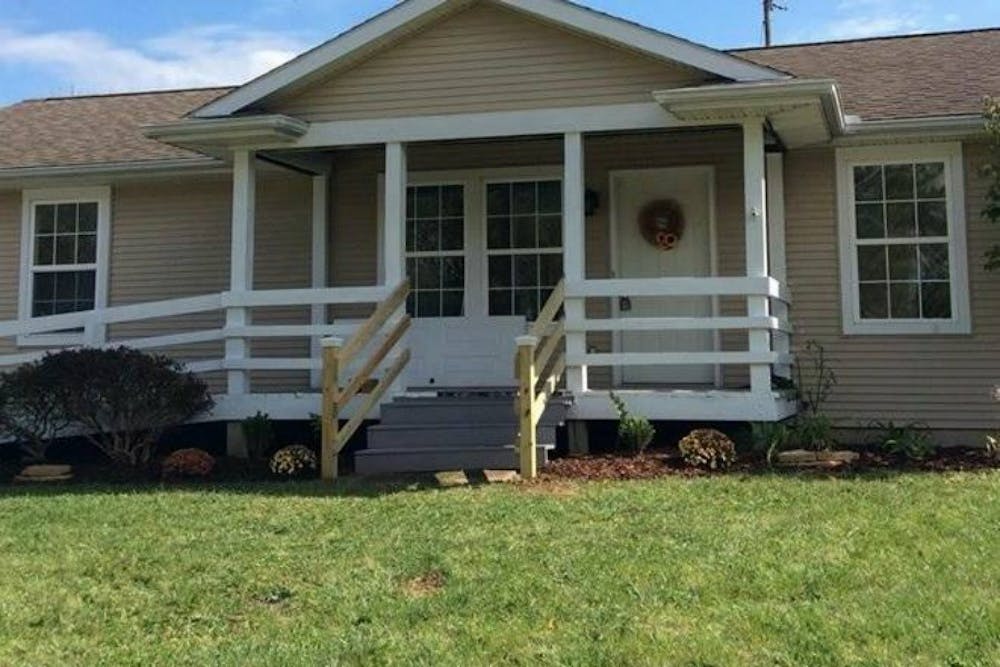By Sarah Mattina, For The Miami Student
In 2013, over 20 percent of families with children attending Miami University had incomes of more than $250,000 a year. Yet, just several miles away, 19.3 percent of Oxford households live with annual incomes of less than $10,000, well below the national poverty threshold of $23,000.
Resources like the Oxford Women's Care Center, which aids these struggling families, is opening a new facility closer to their clients on 10 Reagh's Way. The center focuses on families with infant to toddler-aged children.
For a four-person family, approximately 39 percent of Oxford households live below the poverty line, according to the United States Census Bureau. The national poverty rate is only about 16 percent. Conversely, over half of university families have an income of $100,000 or more, as indicated by FAFSA statistics.
The women's center provides clothes, diapers and other accessories to parents in that 39 percent. Additionally, the center offers abortion-counseling services.
Director of the center, Coralee Shearer knew a new branch was necessary for the future of the center, Although the previous location Uptown was convenient for students, it was very difficult for her clients living across town to access, especially those without a vehicle.
This was the major contributing factor in changing locations. Clients are appreciative of this move and Shearer's efforts, she said.
"There was a point where I was getting low in baby formula, I didn't have a bunch of clothes in his size at the time, I didn't have a stroller or anything," care center client Michelle S. said. "I told her I didn't have a stroller and she said, 'What kind do you want? What kind do you need?' I didn't really know because I never had a need for a stroller before. I don't even think it was two hours past and she came to me with a stroller."
Shearer said she helps many permanent residents of Oxford, like Michelle.
The new facility will have several advantages over the old one, in addition to location. Because the old center was in a small apartment, there wasn't room for all the donations.
The new building will have enough storage for all of the center's supplies. Families also won't have to walk their children and strollers up two flights of stairs to reach the center anymore, because the new building is wheelchair accessible.
Considering the center's challenges, Shearer knew it was time for a change.
She called Jim Lipnickey, director of Habitat for Humanity, and asked if there was any way Habitat could build her center a new home.
Although Habitat was unable to build her a home, they did have one on the market due to foreclosure. The Habitat board agreed to sell her the home for just $35,000.
"God's economy is not man's economy," said Shearer, speaking of her good fortune on the low price of the house. She said she felt like the new center was meant to be.
The organization quickly raised over one-third of the money to fund the purchase through donations and fundraisers.
Teams of people have been coming for several weeks to help overhaul the house for use. Saturdays are the main workdays, and interns or other volunteers will come in for a several-hour shift.
Bob Shearer, Coralee Shearer's husband, has been putting a lot of his time into getting the house ready. He said he knows his wife loves what she's doing, and he wants to help her as well.
"I worked as a carpenter for many years, and Rob Hoover was a professional painter, so we're using our skills as best as we can," Shearer said of the combined volunteer effort going into preparing the house.
The center should be ready to start moving supplies in within the next two weeks.
The Women's Care Center is always looking for volunteers to help with move-in and other daily operations.
Those interested in getting involved can contact Shearer at (513)523-1814.

